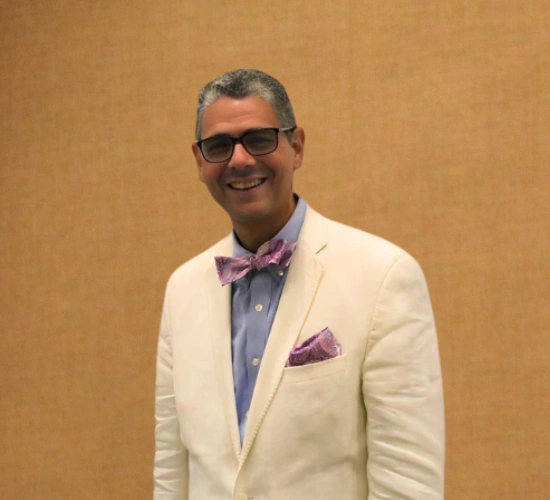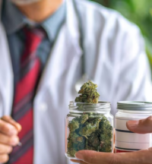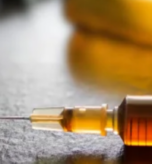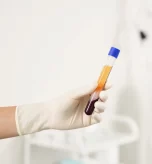Did you know that African American men face higher rates of mental health struggles and addiction compared to other groups in America?
These challenges are not just statistics—they’re real stories of men battling issues like depression, anxiety, and substance abuse every day.
Hi, I’m Dr. Joseph Rosado, a consultant and MD with years of experience helping individuals overcome mental health and addiction challenges. I have seen firsthand how difficult it can be for African American men to find culturally sensitive support and access the right resources.
I’ll share vital information and resources to support African American men struggling with mental health and addiction. Whether it’s breaking the stigma, finding community-based programs, or accessing professional help, my goal is to guide you toward a healthier, more empowered life.
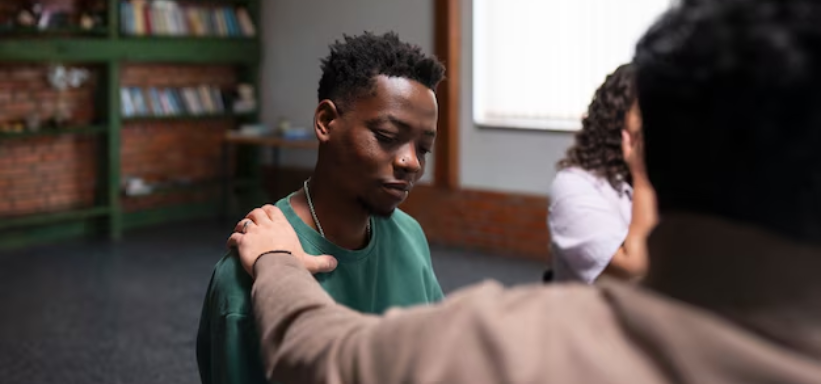
Prevalence of Mental Health Issues Among African American Men
“Mental health struggles don’t discriminate, but the impact can vary widely among different communities. For African American men, the numbers tell a powerful story of a group that faces higher rates of mental health challenges but often with fewer resources and more stigma.”
- Higher Rates of Mental Health Disorders:
- African American men experience higher rates of depression, anxiety, and post-traumatic stress disorder (PTSD) compared to their white counterparts.
- According to the National Institute on Minority Health and Health Disparities, about 16% of African Americans reported a mental illness in 2018, with 22.4% of those reporting a serious mental illness that interfered with their lives.
- Suicide Rates and Youth Impact:
- In 2019, 11.8% of Black teenagers attempted suicide, compared to 7.9% of white teenagers.
- Suicide is the third leading cause of death for African American males aged 15 to 24, highlighting the urgent need for mental health support.
- Factors Contributing to Mental Health Struggles:
- Socioeconomic Disparities: African American men living below the poverty line are twice as likely to report mental health challenges.
- Stigma in the Community: Mental health struggles are often seen as a sign of weakness, preventing many men from seeking help.
- Systemic Barriers: Limited access to culturally sensitive mental health services and economic inequality contribute to untreated mental health issues.
Substance Abuse and Addiction Trends Among African American Men
“Addiction doesn’t just affect the person using substances—it impacts families, communities, and futures. Unfortunately, African American men are facing a growing crisis when it comes to substance abuse, particularly with opioids and other dangerous substances.”
Rising Overdose Death Rates
- In 2020, overdose death rates for Black men aged 65 and older were almost seven times higher than those of white men in the same age group.
- Between 1999 and 2018, synthetic opioid overdoses among Black men skyrocketed from 0.1 to 36 deaths per 100,000.
Impact of the COVID-19 Pandemic
- The pandemic exacerbated substance abuse issues, with many African American communities facing increased stress, isolation, and reduced access to treatment services.
- In 2021, a Pew Research Center study found that 42% of Black adults considered drug addiction a “major problem” in their community, compared to 34% of white adults.
Substances Most Commonly Abused
- Synthetic Opioids: The most significant rise in overdose deaths has been linked to substances like fentanyl.
- Alcohol: Often used as a coping mechanism for stress and trauma.
- Illicit Drugs: Cocaine, marijuana, and methamphetamines are also commonly misused.
Why the Disparity?
- Systemic Inequities: Access to healthcare, addiction treatment, and mental health services is often limited in predominantly Black neighborhoods.
- Historical and Ongoing Trauma: Stress from racial discrimination, economic hardship, and community violence contributes to higher substance abuse rates.
Barriers to Accessing Mental Health and Addiction Services
For many African American men, getting help for mental health and addiction isn’t just about finding the right treatment—it’s about overcoming a system full of obstacles. These barriers can turn an already challenging situation into an uphill battle.”
1. Cultural Stigma Around Mental Health
- In many African American communities, mental health struggles are often seen as a sign of weakness.
- “Toughing it out” is a common mindset, leading men to avoid seeking help until a crisis hits.
2. Economic Barriers
- African American men are more likely to face financial hardships that limit access to quality healthcare.
- Insurance gaps, high treatment costs, and limited availability of low-cost services prevent many from getting the help they need.
3. Limited Access to Culturally Competent Care
- Many healthcare providers lack an understanding of cultural nuances, leading to misdiagnosis or inappropriate treatment plans.
- African American men may feel mistrustful of healthcare providers, stemming from historical mistreatment and systemic bias in medical settings.
4. Geographic and Systemic Challenges
- Mental health deserts: Predominantly Black neighborhoods often lack mental health clinics and specialists.
- Transportation issues and scheduling conflicts make attending regular appointments difficult.
5. Lack of Awareness and Resources
- Many are simply not aware of the resources available to them, or they struggle to find programs that meet their specific needs.
- Outreach and education are needed to bridge this gap and guide African American men to supportive services.


Culturally Sensitive Support Resources for African American Men
“When it comes to mental health and addiction recovery, feeling understood and supported is crucial. For African American men, finding culturally sensitive resources can make all the difference in a successful healing journey.”
1. Therapy for Black Men
- This organization provides a directory of Black therapists to ensure culturally relevant mental health support.
- They focus on creating a safe space for Black men to discuss their struggles without fear of judgment.
2. Black Men Heal
- A non-profit organization offering free mental health services specifically designed for Black men.
- Emphasizes the importance of mental wellness and breaking down the stigma surrounding mental health in the Black community.
3. Black Mental Health Alliance
- Offers training, support groups, and referrals to Black mental health professionals.
- Aims to improve mental health outcomes by providing evidence-based practices with a cultural perspective.
4. BEAM (Black Emotional and Mental Health Collective)
- Provides resources, educational workshops, and peer support to help Black men manage mental health challenges.
- Their programs focus on healing from trauma, managing stress, and building emotional resilience.
5. Ourselves Black
- An advocacy group that shares recovery stories, positive coping strategies, and mental health resources specifically for African American men.
- They provide podcasts, articles, and support networks to promote mental well-being.
Community-Based Initiatives Supporting African American Men
“Support doesn’t always come from formal therapy or medical institutions. Sometimes, the best help comes from within the community—where understanding, trust, and cultural connection thrive.”
1. Concerned Black Men of America
- A community outreach organization founded by and for Black men.
- Focuses on rebuilding inner-city communities impacted by addiction, violence, and economic hardship.
- Offers mentorship programs, educational workshops, and family support services.
2. The No Shame Movement
- A national initiative aimed at destigmatizing mental health and addiction in the Black community.
- Provides resources, community forums, and a network of support for African American men working on their mental health.
3. Young People in Recovery
- A non-profit organization with chapters across the country.
- Builds a community of young men and women in recovery, offering peer support, job training, and educational resources.
- Helps young Black men find purpose and stability during and after their recovery journey.
4. The Transformation Center
- Based in Maryland but offers resources nationwide.
- Works directly with Black communities, focusing on mental health, addiction recovery, and economic empowerment.
- Their resource page lists support services available across the country.
5. Word In Black
- A coalition of Black news publishers highlighting stories of strength and recovery in African American communities.
- Provides information on mental health resources, addiction recovery programs, and community initiatives.
Holistic Approaches to Wellness for African American Men
Healing isn’t just about treating symptoms—it’s about nurturing the mind, body, and spirit. For many African American men, holistic practices offer a powerful way to find balance and recover from mental health and addiction challenges.”
1. Incorporating Traditional Healing Practices
- Embracing spiritual practices, such as prayer and meditation, which are often deeply rooted in Black culture.
- Practices like storytelling, music, and art therapy can help process trauma and express emotions safely.
2. Physical Wellness and Exercise
- Activities like yoga, tai chi, and dance not only improve physical health but also reduce stress and anxiety.
- Exercise helps boost endorphins, the body’s natural mood elevators, supporting both mental and emotional well-being.
3. Mindfulness and Meditation
- Techniques like deep breathing and guided meditation can help manage symptoms of PTSD, depression, and addiction cravings.
- Apps like Liberate and The Shine App offer meditations and wellness tools specifically designed for people of color.
4. Nutritional Support and Healthy Living
- A healthy diet plays a critical role in mental health. Foods rich in omega-3 fatty acids, vitamins, and antioxidants can enhance brain function and mood stability.
- Programs that offer nutritional counseling can provide African American men with the knowledge to support their mental and physical health.
5. Community and Cultural Engagement
- Participating in community events, support groups, and cultural activities can reduce feelings of isolation and increase support networks.
- Connecting with others who share similar experiences helps create a sense of belonging and emotional safety.
Overcoming Stigma Around Mental Health and Addiction
“For many African American men, asking for help with mental health or addiction can feel like a weakness. But the truth is, reaching out takes real strength. Breaking the stigma is not just important—it’s life-changing.”
1. Recognizing the Impact of Stigma
- Internalized Stigma: Many African American men feel pressure to be “strong” and not show vulnerability, which can lead to bottling up emotions.
- Community Expectations: Traditional views on masculinity may discourage discussing mental health and emotional struggles.
2. Normalizing Conversations About Mental Health
- Sharing personal stories and testimonies helps show that mental health struggles are common and manageable.
- Platforms like Black Men Speak and Ourselves Black offer spaces where African American men can share their experiences openly.
3. Education and Awareness
- Providing education about mental health disorders and addiction helps reduce misconceptions.
- Organizations like BEAM (Black Emotional and Mental Health Collective) provide workshops and training sessions to increase mental health literacy.
4. Promoting Culturally Relevant Resources
- Connecting men with culturally competent therapists through services like Therapy for Black Men helps create a safe and understanding environment for healing.
- Highlighting resources that blend traditional healing with modern therapy encourages more men to seek help.
5. Celebrating Success Stories
- Showcasing recovery journeys and positive mental health stories can inspire others to take the first step toward healing.
- Sharing experiences from community leaders, influencers, and public figures who advocate for mental wellness can have a powerful impact.
Empowering African American Men Through Support and Healing
Throughout this guide, we’ve explored the unique challenges faced by African American men, from mental health disparities and substance abuse trends to systemic barriers in accessing care. We’ve also highlighted a range of culturally sensitive resources, community initiatives, and holistic approaches that can make a real difference.
The truth is, breaking down stigma, offering accessible care, and sharing success stories can transform lives. By combining traditional healing practices with modern therapeutic methods, we can create a more inclusive and supportive network for those in need.
If you or someone you know is struggling, remember: Help is available. Whether it’s through professional therapy, community support programs, or simply reaching out to a trusted friend or family member, taking the first step toward healing is a sign of strength.
As a consultant and MD, I am here to offer guidance and support. If you have questions or need further resources, please don’t hesitate to reach out. Your journey to wellness is important, and together, we can work toward a healthier, more hopeful future.


